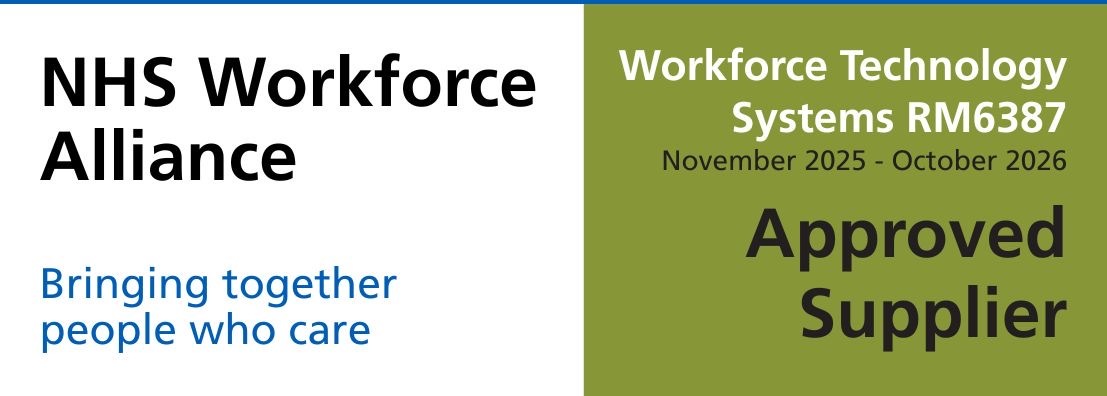
Blog by Flexzo
How NHS Trusts Can Break Free from Agency Dependency
For NHS managers and workforce leads, maintaining proper control over staffing is crucial for providing quality care. But as reliance on agency staff increases, that control gradually slips away. This challenge goes beyond just the financial impact – it affects who shapes your workforce and how your organisation functions on a daily basis.
At first glance, agency staffing appears to offer flexibility and control. Need a nurse for tomorrow’s shift? Make a quick call and the position is filled. But this surface-level control hides a deeper loss of influence over essential aspects of your workforce management.
Losing Your Say in Who Delivers Care
When permanent positions remain unfilled and agencies step in to fill the gaps, the decision about who works in your hospital shifts from your HR team to agency recruiters. These external parties often have different priorities and selection criteria than you would use.
While agencies perform the necessary background checks, they rarely understand your team dynamics, culture, and specific needs as well as your own managers would when hiring. The result is staff who may have the right qualifications on paper but might not be the best fit for your organisation’s unique environment.
When Staff Availability Becomes Unpredictable
Agency staff typically work across multiple organisations, which means your shifts may not always be their top priority. This creates uncertainty about who will be available, especially during busy periods when everyone is competing for the same limited pool of temporary workers.
During winter pressures or local health emergencies, Trusts that depend heavily on agency staff often find themselves desperately searching for workers at precisely the times when reliability matters most. The power balance shifts to the agencies who can place their workers wherever they choose, often favouring those willing to pay the highest rates.
Watching Your Workforce Development Slip Away
Perhaps the most significant long-term effect of agency dependency is how it erodes control over workforce development and organisational culture.
Training Pathways Fall Apart
Developing staff skills requires consistent investment over time. With agency workers rotating frequently, this development process breaks down. Training initiatives started with one group may not continue with the next, and improving the overall skill level of your workforce becomes increasingly difficult.
This affects not just clinical skills but also the adoption of new systems, processes, and quality improvement initiatives. When a significant portion of your workforce changes regularly, implementing new approaches becomes exponentially more challenging.
Your Organisational Culture Weakens
Your organisation’s values, working practices, and quality standards are carried and reinforced by your staff. Agency dependency brings a constant stream of people who haven’t been immersed in your culture and may bring different working habits from other settings.
Over time, this can weaken your carefully developed organisational culture and create inconsistency in how care is delivered. Teams may operate differently depending on who’s working that day, making it harder to maintain standard approaches to patient care.
Financial Control Becomes More Difficult
The financial implications of agency dependency extend beyond higher hourly rates – they create fundamental challenges for budget management and strategic planning.
Spending Becomes Reactive Instead of Strategic
With high agency use, financial control becomes increasingly reactive. Budgets are constantly adjusted to cover essential staffing, often at the expense of planned investments in equipment, facilities, or preventative programmes.
This reactive spending pattern makes long-term financial planning difficult, as a significant portion of the budget becomes unpredictable. Strategic decisions get delayed or abandoned because funds need to be held in reserve for potential agency costs.
Your Negotiating Power Diminishes
As dependency grows, Trusts often find they have less negotiating power over rates and terms. When a shift must be filled to maintain safe care, the priority becomes finding anyone qualified rather than securing the best value.
This power imbalance is particularly noticeable in shortage specialties or during peak demand periods, where agencies know Trusts have little choice but to pay premium rates. The control over what constitutes reasonable costs shifts from the Trust to the agencies.
Day-to-Day Operations Suffer
Daily operations are significantly affected when agencies control a substantial portion of your workforce.
Rotas Become Less Flexible
Creating efficient rotas becomes increasingly difficult with a high proportion of agency staff. While your permanent staff might be willing to adjust their hours to cover gaps or swap shifts with colleagues, agency workers typically have fixed availability that offers little room for change.
This inflexibility makes it harder to adapt to changing needs or unexpected absences, often resulting in either over-staffing (to ensure coverage) or last-minute scrambles for additional agency cover.
Service Development Slows Down
Developing new services or changing existing ones requires a stable workforce that can be trained and developed together. High agency use makes service development more challenging, as key staff may not be present long enough to fully implement and establish changes.
This can slow innovation and improvement efforts, limiting your ability to adapt services to changing population needs or to implement new best practices in care delivery.
How to Take Back Control
Despite these challenges, NHS Trusts can reclaim control over their workforce with the right approaches.
Building Flexibility Within Your Organisation
Many healthcare professionals choose agency work for the flexibility it offers. Creating similar flexibility within permanent roles can help attract and retain staff while maintaining organisational control.
Internal banks, self-rostering systems, and annualised hours contracts all offer ways to give staff more control over their working patterns while keeping them within your organisation and culture.
Working Together Rather Than Competing
Individual Trusts often compete for the same limited pool of staff, reducing everyone’s control. Collaborative approaches like shared staff banks can provide a better solution, allowing Trusts to work together rather than against each other.
These collaborative models maintain local influence over staffing while creating a larger, more stable pool of flexible workers who become familiar with the organisations they support.
A New Solution for NHS Staffing Challenges
What Flexzo Ai Offers
Flexzo Ai is a collaborative staff bank platform specifically designed for healthcare. It’s a digital platform that directly connects NHS Trusts and healthcare organisations with qualified healthcare professionals, without the traditional agency middleman.
Flexzo Ai is a technology-enabled network that allows healthcare professionals to find flexible work while enabling NHS Trusts to fill shifts without agency markup fees. The platform serves as a shared pool of pre-approved healthcare workers that multiple Trusts can access, creating a much larger and more stable flexible workforce than any single organisation could maintain alone.
Unlike traditional agencies that sit between Trusts and healthcare workers, Flexzo Ai’s model gives both sides direct contact with each other, restoring control to NHS organisations while still providing the flexibility that staff value. The platform was developed by healthcare recruitment experts who understood the limitations and challenges of the traditional agency model.
Get in Touch
If your Trust is experiencing the challenges of agency dependence, Flexzo Ai’s collaborative approach could provide a practical solution.
Contact the Flexzo Ai team to learn how our platform can help your organisation reduce costs, improve continuity, and create a more sustainable staffing model that works better for everyone involved.






